TODAY’S MYSTERY: It’s a beautiful photo and a gorgeous house, and some of you may have seen it in your travels. Tell us where this house is located, and give us a little background on this Mystery Photo. Send your ideas to elliott@brack.net and include your hometown.
 TODAY’S FOCUS: The Country Needs Closure: Schedule Impeachment Hearing Soon
TODAY’S FOCUS: The Country Needs Closure: Schedule Impeachment Hearing Soon
EEB PERSPECTIVE: Twitter Shows the Way, While Facebook President Offers No Solutions
ANOTHER VIEW: Looking Back at How One Idea Leads to Another in the South
SPOTLIGHT: Mingledorff’s
FEEDBACK: Send us your thoughts
UPCOMING: Citizens’ Climate Education Group Plans Three Meetings in Gwinnett
NOTABLE: Peach State Credit Union Honors GGC Dean with Naming Scholarship
RECOMMENDED: A Word’s Worth by Susan Larson
GEORGIA TIDBIT: Wiregrass Region of Georgia Among Slowest To See Development
MYSTERY PHOTO: Stately Mansion Is This Edition’s Mystery Photo
LAGNIAPPE: Color Finally Coming to Trees of the Area
CALENDAR: Holocaust Survivor Speaks Sunday at Peachtree Corners City Hall
The U.S. needs closure: Schedule impeachment hearing soon
By Theirn Scott
LAWRENCEVILLE, Ga. | Republicans, a president you like to quote these days said in 1961, “Ask what you can do for your country.” Since President Trump released the transcript of the July 25 Zelenskyy conversation, there has been testimony that should bring to Republicans a willingness to reevaluate their position on impeachment. That’s the ask.
The Washington Post recently reported eight instances where a quid pro quo has been alleged and either publicly confirmed or reported to have been confirmed:
- In the July 10 meeting between E.U. Ambassador Gordon Sondland and Oleksandr Danylyuk.
- In a debrief of the July 10 meeting where Sondland reiterated what was said in the previous meeting.
- On July 25 in a text message from Kurt Volker, special envoy to Ukraine to Andrey Yermak, an aide to Zelenskyy.
- On August 10 when Yermak texted Volker tying a presidential meeting to a public statement confirming new investigations by Ukraine.
- On August 30 Sen. Ron Johnson (R-Wis.) spoke to Sondland who said that Trump will “release the military spending” when Trump is confident Ukraine will “get to the bottom” of what happened in 2016.
- On September 1 in a call between acting Ukraine ambassador William Taylor and Tim Morrison, a former special assistant to Trump. Immediately following the above call on September 1 Taylor called Sondland, who confirmed what Morrison had just been told.
- On a September 7 call between Taylor and Morrison where they discussed a Sondland conversation with Trump.
Don’t take the word of The Washington Post. There will soon be public hearings. Pay attention. Rise above politics, put aside your ideology for a moment and objectively pay attention. You think you’re better than Democrats. Prove it.
The country faces an ominous choice next year; four more years of constitutional crises, or a Democratic president. The removal or just the impeachment of Trump may ensure a Democratic victory. But that’s relatively unimportant. The country can survive a socialist president. It can’t survive the continued debasement of our system of checks and balances.
The Democrats in turn, need to show some fairness to the investigations by the Department of Justice (DoJ) of itself. One is DoJ Inspector General Horowitz’ look into the FISA application and subsequent renewals to surveil former Trump adviser Carter Paige. The other is the “investigation of the investigators” being led by U.S. Attorney John Durham. This investigation is necessary to ensure accountability within the Federal Bureau of Investigation and Department of Justice. The ability of Durham to empanel a Grand Jury and expand on aspects of the Horowitz investigation will ensure any criminal indictments needed, will happen.
With all this going on nothing of substance is going to be accomplished legislatively until the Trump impeachment process is completed. Congress should focus on these three investigations putting them all to bed before the political season gets into full swing in February of 2020.
Democrats can start by getting Judiciary Chairman Gerald Nadler to schedule a hearing to get testimony from FBI Director Christopher Wray and I.G. Michael Horowitz regarding the soon to be published I.G. report. Sequential scheduling of these hearings is the best way to focus everyone on all the issues.
The country needs closure on all this. Reach out to your congressmen and senators, encourage them to engage these investigations objectively and quickly.
- Have a comment? Send to: elliott@brack.net
Twitter shows the way, while Facebook offers no solutions
By Elliott Brack
Editor and Publisher, GwinnettForum
NOV. 5, 2019 | Hurrah for Twitter!
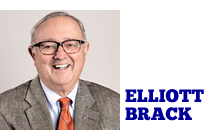 This high-tech company seems to have its head screwed on right for a change, as it announced a coming ban on all political advertisements on its site. It is doing this while still allowing political comment from its subscribers to continue, as long as it is not paid content.
This high-tech company seems to have its head screwed on right for a change, as it announced a coming ban on all political advertisements on its site. It is doing this while still allowing political comment from its subscribers to continue, as long as it is not paid content.
The president of Twitter, Jack Dorsey, is banning manipulated video attempts to spread misinformation. Dorsey feels such paid advertising presents challenges to civic discourse, “all at increasing velocity, sophistication and overwhelming scale.”
In this ever-increasing complex technical world, it’s apparent that the technology is ahead of the consumption, and that the viral use of the Internet needs some curbs, just as our highways have speed limits for our personal safety. The Internet needs limits on what people can throw out on it, again for our personal safety.
Falsehoods spread in print is libel. In free speech, falsehoods are slander. On the Internet, falsehoods seem to have no limits, nor are they punishable.
The comments by the Twitter chief is in sharp contrast to the stance taken by Mark Zuckerberg, founder of Facebook. In testimony before Congress, he said he would continue to allow politicians to run advertisements on Facebook, even false claims. He said he felt such claims were free expressions, and that paid political advertisements were newsworthy.
Mr. Zuckerberg comes down on the side of total freedom of expression, never seeming to realizing it was his delivery concept that propelled Facebook to its high importance today, and that he has blame. He seems not to want to take any responsibility for messages on its site, even though the message may be false, misleading and downright mean. Yet it is this site that he developed which is delivering such banal pronouncements. Indeed, there should be some limits on what he is sending out, especially since other people are taking advantage of the lack of limits of oversight on his platform.
We immediately think back to the people who gave this country our tradition of free speech, our Founding Fathers. They never could have been able to conceive of the myriad ways we have to communicate today at lightning speeds. For they provided us with the First Amendment and other rights, must be taken into account when any communication issue is discussed.
Yet there is a great distance between the concepts of free press and free speech, and today’s current methods of communication, where these free concepts can be distorted into something entirely different from what was intended. What would Founding Father have thought that some politician in America’s future would intentionally put forward deliberate falsehoods as real, in an effort to propel an idea or to muddy understanding?
Let’s allow ethics to enter the picture. Would Mr. Zuckerberg accept advertising that he knew was false, just to make a buck on it? What kind of person would do that? Yet ethical considerations seldom seem to arise in this new technical world.
How Internet companies can police misleading advertising is something we can’t envision. Yet through their own devices, replete with logarithms, there should be ways to do this. Let the smart people figure this out, and we are confident they can.
Meanwhile, we are thankful for Jack Dorsey and Twitter for making this stand, which is the right thing to do. Not enough top high-tech executives are designing means to halt such problems, nor speaking out. We encourage them to step forward with pronouncements which can “make America great again.”
- Have a comment? Send to: elliott@brack.net
Looking back at how one idea leads to another in the South
By Byron Gilbert
DULUTH, Ga. | My mind has become a rabbit hole digger. One hole leads to another. My interest in ancestry may have caused this pattern.
![]() America in 1854 was under Franklin Pierce and struggling with the implementation of the Compromise of 1850. Compromise in earlier years had worked in satisfying the varying interests in our rapidly changing country. In the past, each group went home with some win and a piece of flesh. But the great negotiators, Clay and Webster, were long in the tooth and their powers were not up to the task. Clay had lost a son in the President Polk (D) war with Mexico. The South was caught flatfooted when Zachery Taylor brought California in as a free state, cutting off shipments to the Far East that was so needed. Kansas-Nebraska only fanned the flames.
America in 1854 was under Franklin Pierce and struggling with the implementation of the Compromise of 1850. Compromise in earlier years had worked in satisfying the varying interests in our rapidly changing country. In the past, each group went home with some win and a piece of flesh. But the great negotiators, Clay and Webster, were long in the tooth and their powers were not up to the task. Clay had lost a son in the President Polk (D) war with Mexico. The South was caught flatfooted when Zachery Taylor brought California in as a free state, cutting off shipments to the Far East that was so needed. Kansas-Nebraska only fanned the flames.
No one had a winning hand to bring home from the new Compromise to quell the local constituency. No one was happy. After six years, it still was not implemented. Northern Democrats voted for implementation and Southern Democrats walked out and nominated Breckinridge. Northern Democrats had a separate convention in Annapolis and nominated Douglas, the supporter of implementation. Divided Democrats led to the new party candidate, Lincoln (R) and victory.
The South’s business position was untenable. Wearing out soil progressively westward, King Cotton (51 percent of GDP then) needed new lands for growing and ports for export. I have always wondered why the industrial revolution that started here around 1820 didn’t make its way through family or bank relationships in the port cities like Charleston, Savannah, or New Orleans.
Power weaving and development of farm implements could have led to the end of the need for slavery.
The first practical machine cotton picker was developed in 1920. This could have happened much earlier if the thinking was in place to replace slavery. Demand reaps development as we so often see in industry and military. The question would have been the transition of slaves to citizenship and regular employment. Could the owners maintain ownership in the new mechanized farm and fabric industry?
Particularly, development of harvesting or plowing inventions could have brought the end of farm workers as they did up north. Need could have accelerated the development of products.
People were relaxed with slavery, so it continued with owners as kings, who didn’t need to consider arrogant northern ideas. As I said, one idea leads me to another.
- Have a comment? Send to: elliott@brack.net
Mingledorff’s

 The public spiritedness of our sponsors allows us to bring GwinnettForum.com to you at no cost to readers. Today’s featured sponsor is Mingledorff’s, an air conditioning distributor of the Carrier Air Conditioning Company. Mingledorff’s corporate office is located at 6675 Jones Mill Court in Norcross Ga. and is proud to be a sponsor of the Gwinnett Forum. With 37 locations in Georgia, Alabama, Florida, Mississippi and South Carolina, Mingledorff’s is the convenient local source with a complete line for the quality heating, ventilating, air conditioning, and refrigeration parts and supplies you need to service and install HVAC/R equipment. Product lines include Carrier, Bryant, Payne, Totaline and Bard.
The public spiritedness of our sponsors allows us to bring GwinnettForum.com to you at no cost to readers. Today’s featured sponsor is Mingledorff’s, an air conditioning distributor of the Carrier Air Conditioning Company. Mingledorff’s corporate office is located at 6675 Jones Mill Court in Norcross Ga. and is proud to be a sponsor of the Gwinnett Forum. With 37 locations in Georgia, Alabama, Florida, Mississippi and South Carolina, Mingledorff’s is the convenient local source with a complete line for the quality heating, ventilating, air conditioning, and refrigeration parts and supplies you need to service and install HVAC/R equipment. Product lines include Carrier, Bryant, Payne, Totaline and Bard.
- For all of your HVAC needs, and information on the products Mingledorff’s sells, visit www.mingledorffs.com and www.carrier.com.
- For a list of other sponsors of this forum, click here.
Send us your thoughts
We encourage you to send us your letters and thoughts on issues raised in GwinnettForum. Please limit comments to 300 words. We reserve the right to edit for clarity and length. Send feedback and letters to: elliott@brack.net
Citizens’ Climate Education plans 3 meetings in Gwinnett
Citizens’ Climate Education (CCE) will present informational sessions in coming weeks at three Gwinnett public library branches. People interested in climate solutions are encouraged to attend. The times and locations are:
- Saturday, November 16 at 3 p.m., Collins Hill branch, 455 Camp Perrin Road;
- Friday, November 22 at 3 p.m., Suwanee branch, 361 Main Street; and
- Monday, December 2 at 6 p.m., Five Forks branch, 2780 Five Forks Trickum Road.
The one-hour program, “Toward a Hopeful Future: Inspirations and Solutions,” will be presented by Kathe Gowland and Dr. Terry Welsher of the Gwinnett chapter of CCE.
Gowland, who retired from Gwinnett County Public Schools after more than 30 years teaching in all grade levels, finds many reasons to be hopeful. Along with other Gwinnett chapter members, she had the opportunity to meet Congressman Rob Woodall at his Lawrenceville office last year. She describes herself as “thrilled” that this summer Woodall joined the bipartisan Climate Solutions Caucus.
Welsher, Gwinnett chapter leader and co-state-coordinator of CCE, is a physicist and engineer who retired from Lucent Technologies Bell Labs and has lived in Suwanee since 2003. This year he has spoken to local Rotary Clubs and other organizations about climate solutions. He says, “I have been impressed by the openness of people across the political spectrum to conversations on this topic.”
CCE is a nonpartisan grassroots advocacy organization that empowers individuals to educate key stakeholders, policymakers, and the general public about effective solutions to climate change. Its consistently respectful approach to climate education is designed to create a broad, sustainable foundation for action across all geographic regions and political inclinations. By training and mobilizing a powerful coalition of climate advocates, CCE builds political will for long-lasting climate solutions.
Shelter waiving older pet adoption fees in November
Gwinnett Animal Welfare and Enforcement during November is waiving all adoption fees on dogs and cats five years old and up.
Alan Davis, director of Gwinnett Animal Welfare and Enforcement, encourages residents to visit during November to find the perfect new family member in time for the holidays. “Senior pets don’t ask for much; just a warm place to sleep, good meals and plenty of love.”
 The shelter is also offering a variety of events and specials to encourage adoptions and pet health. The first annual Best Friend Pet and Safety Festival will be held Saturday, November 9 from 10 a.m. to 2 p.m. at Best Friend Park near Norcross with lots of family fun, pet and safety demonstrations and free pet vaccinations for the first 500 pets to visit the Gwinnett Animal Welfare trailer.
The shelter is also offering a variety of events and specials to encourage adoptions and pet health. The first annual Best Friend Pet and Safety Festival will be held Saturday, November 9 from 10 a.m. to 2 p.m. at Best Friend Park near Norcross with lots of family fun, pet and safety demonstrations and free pet vaccinations for the first 500 pets to visit the Gwinnett Animal Welfare trailer.
On November. 30, adopters can name their own price at the Name Your Price adoption event. Come and adopt a shelter pet — of any age — at a fee of your choice. Shortly after that, December 2 is Big Mutt Monday; adoption fees will be waived on all dogs that weigh 20 pounds or more.
All pets adopted at Gwinnett Animal Welfare have been vaccinated, neutered and microchipped, and are ready to join their new family. Dogs that have tested heartworm positive will be treated before going home. The standard adoption fee is $45 for dogs and puppies and $30 for cats and kittens.
- Gwinnett Animal Welfare is located at 884 Winder Highway in Lawrenceville. For more information, visit www.GwinnettAnimalWelfare.com. For more information on CCE, visit https://citizensclimateeducation.org/.
Gwinnett’s Recycles Day coming Nov. 9 at Coolray Field
Gwinnett residents are invited to practice environmental sustainability by bringing paper, electronics, paint and tires to Gwinnett County’s America Recycles Day celebration. The event will be held Saturday, November 9 from 9 a.m. until noon at Coolray Field, 2500 Buford Drive in Lawrenceville.
 Gwinnett County Solid Waste Management and Gwinnett Clean and Beautiful will offer paper shredding and recycling opportunities for electronics, tires, ink/toner cartridges and paint. Residents may also bring sneakers and gently used clothing to be donated or recycled.
Gwinnett County Solid Waste Management and Gwinnett Clean and Beautiful will offer paper shredding and recycling opportunities for electronics, tires, ink/toner cartridges and paint. Residents may also bring sneakers and gently used clothing to be donated or recycled.
The event will include family fun such as touch-a-truck displays, a bounce house, face painting, refreshments and giveaways. Residents will also have an opportunity to meet their solid waste haulers.
Residents are asked to keep the following quantities and fees in mind:
- paper (limit of five copier paper boxes)
- paint (limit of 10 gallons per vehicle)
- tires (limit eight; no dealer tires)
- electronics (no fee for computers; $15 cash fee per monitor and television, $5 cash fee per printer)
For more information, call Solid Waste Management at (770) 822.7141 between 8 a.m. and 5 p.m. Monday through Friday or email gcsolidwaste@gwinnettcounty.com.
Suwanee Classic Car returns Nov. 10 to Suwanee
The Suwanee Classic Car Show returns to Town Center on Sunday, November 10 from 10 a.m. to 5 p.m. Admission is free. Presented by the North Gwinnett Arts Association, it boasts 150 souped-up classic cars. Set in the Suwanee Town Center, avid car lovers, artists, and members of the Georgia State Defense Force come together for a patriotic-themed car show.
Opening ceremonies begin at 10 a.m. on the steps of Suwanee City Hall, flanked by a giant American flag and featuring guest bagpiper Anthony Mack, ROTC cadets from North Gwinnett High School, and soloist Precious Kollie leading the singing of the national anthem.
At 2 p.m. there will be a Veterans Appreciation Ceremony on the steps of City Hall with guest speaker Derek Somerville, followed by an awards ceremony. The event will also feature sponsor exhibits, enticing foods from Town Center restaurants, NHRA JR Dragsters, a crime scene van, silent auction, paint-a-wreck, speed paint-out featuring plein air artists, a 50/50 raffle, and music by Uptown Entertainment. For more information regarding the Suwanee Classic Car Show, contact Cherie Heringer at president@ngaa4arts.com or 678-467-1627.
Peach State Credit Union scholarship honors GGC dean
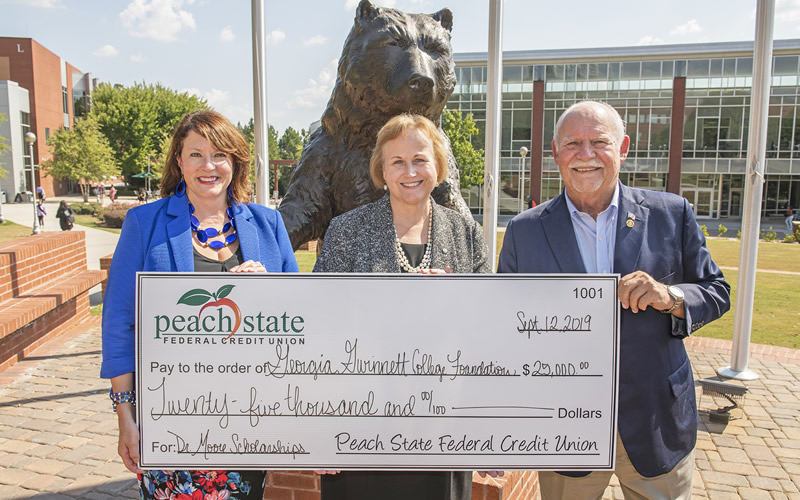
Dr. Cathy Moore (center) is the honoree of a scholarship from Peach State Federal Credit Union. At the left is Jennifer Hendrickson, GGC’s executive director of Corporate and Foundation Relations while Marshall Boutwell is at the right.
Peach State Federal Credit Union (PSFCU) has established a scholarship fund in honor of Dr. Cathy Moore, charter dean of the School of Education at Georgia Gwinnett College (GGC). Moore will retire later this month after 13 years of service to the college.
Peach State’s President/CEO, Marshall Boutwell says: “Peach State was founded by Gwinnett County educators more than 58 years ago. Dr. Moore has paved the way for future educators in Gwinnett through her hard work and dedication to GGC. We are proud to honor her legacy and the roots of our foundation through the support of future educators.”
Moore joined GGC in 2006 and led the creation of its education program, which now offers bachelor’s degrees in elementary education, middle grades education and special education, as well as teaching certificates in biology, chemistry, English, history, mathematics and political science.
Moore was instrumental in developing an innovative partnership with Gwinnett County Public Schools (GCPS), ensuring quality student-teacher experiences that result in work-ready graduates. Through this pipeline, more than 800 graduates have been prepared to pursue a career in teaching, with the largest portion of those teaching in GCPS.
The Cathy Moore Scholarship will be awarded on an annual basis and may be applied to cover tuition, books, and/or required program supply expenses. Applicants must be admitted into one of the educator preparation programs at GGC and have a grade point average of 3.0 or above.
Aurora, UGA theatre dept. to present Niagara Falls for free
A special collaboration between Aurora Theatre and the University of Georgia Department of Theatre will bring the play Niagara Falls to the Aurora stage on November 5-7 at 8 p.m. And, tickets are free and can be reserved at bit.ly/ATNiagaraFalls.
Written by UGA alumnus Steve Yockey, Niagara Falls takes audiences on the journey of newlyweds Jack and Avery as they attempt to enjoy their honeymoon in a tacky vacation suite. Before long, talk of their future together descends into uncertainty, as Avery wonders if maybe they married too hastily and has an unnerving feeling about the stain on the floor that looks suspiciously like a body.
With a cast of memorable characters from along the Niagara Falls boardwalk, Yockey comically examines the delicate balance of the gains and losses of love.
A Word’s Worth by Susan Larson
![]() Many may remember Susan Larson, formerly of Lilburn, who for years had a column in the Gwinnett Daily Post. She has collected 75 of her columns into this book. It’s good. Here’s why: I started to read it, thinking I would dip into it for two or three columns at a time, put it aside, and come back each day. Instead the writing and the subjects are so compelling that I read half the book one night, the other half the second night. Though not a writer (and by choice a professional substitute teacher in Gwinnett schools), she puts words together beautifully. And not only that, but she has the knack of getting interesting people to talk to her. The result produces an array of 75 wonderful relatively short (column size) stories, which uplift you. Available at $15 from susanlar@bellsouth.net. — eeb
Many may remember Susan Larson, formerly of Lilburn, who for years had a column in the Gwinnett Daily Post. She has collected 75 of her columns into this book. It’s good. Here’s why: I started to read it, thinking I would dip into it for two or three columns at a time, put it aside, and come back each day. Instead the writing and the subjects are so compelling that I read half the book one night, the other half the second night. Though not a writer (and by choice a professional substitute teacher in Gwinnett schools), she puts words together beautifully. And not only that, but she has the knack of getting interesting people to talk to her. The result produces an array of 75 wonderful relatively short (column size) stories, which uplift you. Available at $15 from susanlar@bellsouth.net. — eeb
- An invitation: what books, restaurants, movies or web sites have you enjoyed recently? Send us your recent selection, along with a short paragraph (100 words) as to why you liked this, plus what you plan to visit or read next. Send to: elliott@brack.net
State’s wiregrass region among slowest to see development
For much of Georgia’s history, the wiregrass region of South Georgia has been viewed as one of the state’s poorest areas, an isolated and impoverished land of hookworm, pellagra, and poor whites. But its human history is much more complex. Its native inhabitants included the Hitchiti, who were evidently living along the Ocmulgee River when the Spanish explorer Hernando de Soto passed through wiregrass Georgia in 1540, on his way from present-day Florida into the Carolinas. By the time of sustained European contact and settlement, the Lower Creeks hunted and occupied parts of the region.
 During the late 18th and early 19th centuries, the forest was settled as part of a larger folk migration of Euro-Americans and African American slaves from the Carolinas and, to a lesser degree, Virginia. These settlers were primarily involved in self-sufficient farming and livestock herding, and in Georgia’s Coastal Plain they found a familiar environment—including cheap land, open range, and relatively few planters and slaves.
During the late 18th and early 19th centuries, the forest was settled as part of a larger folk migration of Euro-Americans and African American slaves from the Carolinas and, to a lesser degree, Virginia. These settlers were primarily involved in self-sufficient farming and livestock herding, and in Georgia’s Coastal Plain they found a familiar environment—including cheap land, open range, and relatively few planters and slaves.
This process of occupation and settlement began in the eastern part of the wiregrass region during the late colonial period and continued westward with each new Indian land cession until the 1820s, when the final cession was made by the Lower Creeks. Throughout the antebellum period, small farmers continued to clear patches of new ground for agricultural purposes.
Because of its early reputation as a barren region of limited agricultural possibilities, however, the wiregrass forest remained out of the mainstream of colonial and antebellum commercial agricultural expansion. In many respects the area formed borders for Georgia’s richer cotton- and rice-producing regions. Because they both occupied interior woodlands, often associated in the European mind with “wild” places inhabited by Indians, and made few changes to the natural landscape, wiregrass Georgia’s white settlers in time were branded by their wealthier neighbors as lazy, poor, primitive, and violent. These characteristics, previously ascribed to Indians, form the basic features of the “cracker”stereotype.
On the eve of the Civil War (1861-65), wiregrass Georgia was among the most sparsely populated sections of Georgia and the eastern United States. A “white man’s country” with few slaveholders and fewer planters, most white farming families worked fewer than 100 acres of land without slave labor, producing food crops primarily for home consumption. Small quantities of cane syrup, cotton, hides, and wool were annually hauled to market towns like Savannah and traded for store goods.
Because of its overwhelmingly rural and self-sufficient nature, the region had few towns of any size, with the largest ones situated on the edges of the pine forest. Only one railroad, a line running from Thomasville to Savannah, crossed wiregrass Georgia in 1861.
Because it was a relatively poor region characterized by low slaveholding, secessionists feared that the region’s farmers would not support disunion or rise to the defense of a slave society. But wiregrass Georgia, like the state as a whole, was badly divided during the secession crisis.
(To be continued)
- To view the Georgia Encyclopedia online, go to http://www.georgiaencyclopedia.org
Stately mansion is this edition’s Mystery Photo
It’s a beautiful photo and a gorgeous house, and some of you may have seen it in your travels. Tell us where this house is located, and give us a little background on this Mystery Photo. Send your ideas to elliott@brack.net and include your hometown.
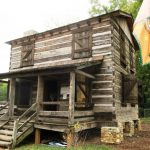 The eagle-eyed spotters of Mystery Photographs were active last week, spotting the Vann Cabin in Cave Spring. The photo was submitted by Jerry Colley of Alpharetta.
The eagle-eyed spotters of Mystery Photographs were active last week, spotting the Vann Cabin in Cave Spring. The photo was submitted by Jerry Colley of Alpharetta.
George Graf of Palmyra, Va. told us: “This log cabin was restored by the Cave Spring Historical Society and is most likely a Cherokee Cabin. It was probably that of David Vann and his family. David Vann was the Treasurer of the Cherokee Nation. The 1838 expulsion of the Cherokee Nation from the state of Georgia culminated a decade of oppressive policies and more than two decades of federal pressure on Native Americans to give up their homelands to white settlement. The expulsion occurred over six weeks under the supervision of soldiers stationed at fourteen sites in north Georgia.
“Responding to dwindling opportunities, 85,000 white Georgians registered for the first of two Cherokee lotteries held in 1832. When the lottery drums stopped turning, more than eighteen thousand land parcels of 160 acres each had been awarded to fortunate drawers. The second lottery, which offered forty-acre parcels in the Cherokee gold belt, attracted 133,000 additional Georgians and dispensed 35,000 more land prizes.”
Susan McBrayer, Sugar Hill, told us: “Avery Vann, brother to Chief James Vann, lived in this house in the early 1800s until the Cherokees were forced to move. Later, the Webster-Green Hotel was built up around it and in 2010, many volunteers worked to demolish the old dilapidated hotel around the cabin then dismantle and restore the log cabin and rebuild it on what is believed to be its original site at 24 Broad Street. I recognized it because of the Cherokee Nation flag which shows the seal of the Cherokee Nation and the date (Sept. 6, 1839) of the signing of the first Cherokee Constitution after the removal of the Cherokees to Oklahoma.”
Robert Foreman, Grayson: “The cabin in the mystery photo is the Cherokee Vann Cabin in Cave Spring, Ga. This restored cabin is believed to be one of the oldest structures in Georgia, having been constructed around 1810.”
Allan Peel, San Antonio, Tex.: “Other than the fact that this structure stands at its original location at 24 Broad Street on the Cave Spring Square, little else about this structure is known for certain. Bear with me (and this long email) as I explain.
‘The Cherokee Vann Cabin is listed as a site along the ‘Trail of Tears’, commemorating the more than 16,000 Cherokee men, women, and children who were forcibly moved from their homes in the southern Appalachian Mountains to stockades and internment camps during 1838 and 1839, after which they walked hundreds of miles to Indian Territory in present-day Oklahoma.
According to the National Parks Service, the cabin was likely built between 1810 and 1823 by a member of the Cherokee Nation, quite possibly David Vann (1800-1863), a sub-Chief and Treasurer of the Cherokee Nation, who was commissioned in 1825 to be a prime negotiator to present the Cherokee’s case to the U.S. government against expulsion from their land in the Southeast. However, these ‘facts’ have been put into question during the 2010 restoration of the Green Hotel in Cave Spring when the two-story log cabin was first discovered. It was actually hidden inside the hotel, behind the blue siding that was removed as part of the renovation.
“Local Cave Spring historians insist that the log structure was built by Avery Vann (i.e. David Vann’s father), in 1810, making it a Cherokee structure. However, the Gold Lottery Maps of 1832 (a lottery system used by Georgia between 1805 and 1832 to distribute land) show no such structure on the lot that the Green Hotel/Vann Cabin now sits. While archaeological dating of the window glass thickness of the hotel gave dates of 1810 or 1823, the dating of the wood that makes up the log cabin indicates that it was cut during the mid-1839 timeframe. This would indicate that the Vann Cherokee Cabin was not built by David Vann, or any Cherokee for that matter, but rather it was likely built by later Euro-American settlers.”
Color finally coming to trees of Gwinnett County
Does it seem to you that the trees of the area were slow in turning to the red, orange and gold of the season this year? Could it have been because of the drought? Roving Photographer Frank Sharp found this colorful maple trees in front of the Gwinnett County Library in Lawrenceville.
![]() Playground Groundbreaking at the Fowler Family YMCA, 5600 West Jones Bridge Road, at 11 a.m. on Friday, November 8. Come celebrate the life and legacy of John Manning at this new playground. This is a rain-or-shine event. Come and enjoy refreshments.
Playground Groundbreaking at the Fowler Family YMCA, 5600 West Jones Bridge Road, at 11 a.m. on Friday, November 8. Come celebrate the life and legacy of John Manning at this new playground. This is a rain-or-shine event. Come and enjoy refreshments.
Holiday Market of local arts and crafts vendors, plus food concessions and a visit to Santa’s Workshop. It’s going on Saturday, November 9 from 10 a.m. to 4 p.m. at the Pinckneyville Park Recreation Center, 4650 Peachtree Industrial Boulevard in Berkeley Lake. Bring your camera for free photos with Santa!
Pet and Safety Festival will be November 9 from 10 a.m. to 2 p.m. at Best Friend Park in Norcross. Come for a day of pet and safety demonstrations, pet services, and family activities! Free vaccinations (RV, DHPP, and FVRCP) and microchips available for the first 500 pets to visit the Gwinnett Animal Welfare trailer. All pets must be on a fixed lead or in a carrier. For more information, please contact Gwinnett Animal Welfare at 770-339-3200.
Help Gwinnett County maintain a sustainable environment by volunteering at the annual America Recycles Day event Saturday, November 9 from 9 a.m. to noon at Coolray Field. Gwinnett residents are invited to recycle paper, paint, electronics, tires, clothing, sneakers and ink/toner cartridges. Volunteers ages 14 and up are needed to unload vehicles, break down boxes, distribute recycling information and support other America Recycles Day activities. The event is rain or shine. Volunteers should register at www.VolunteerGwinnett.net. For more information, please contact Gwinnett Clean and Beautiful at (770) 822-5187.
Origami Day for Beginners will be November 9 from 10 a.m. until noon at OneStop Norcross, 5030 Belle Court in Norcross. Participate in the wonder and beauty of paper folding. If you have never folded before, learn how to make basic models. Light refreshments and materials included. Cost: $5 per person. For ages 8 and up.
Holocaust Survivor Bebe Forehand will speak at the Peachtree Corners City Hall on Sunday, November 10 at 3 p.m. Like Anne Frank, Forehand was hidden from the Nazis in an attic. She lived in a 12’x14′ room for three years. As a result, her family was able to survive the Holocaust. The event is free and an opportunity to hear the first person account of a Holocaust survivor, a once in a lifetime experience
Veteran’s Day Ceremony at the Gwinnett Justice and Administration Center is Monday, Nov. 11, at 11 a.m. at the Fallen Heroes Memorial. The ceremony will be televised on TV Gwinnett, the government access channel. The featured speaker will be retired Army Brigadier General Curt Rauhut of Georgia Military College.
Peachtree Corners Veteran’s Day Ceremony will be November 11 at 11 a.m. at the new Veterans Monument in Town Center. The 45 minute program will include music by the Norcross High School Band and A Capella chorus, plus guest speakers. For information visit www.ptcvets.net.
Snellville Commerce Club will have its Tourism and Trade Annual business meeting and will be on Tuesday, November 12, at the Summit Chase Country Club, 3197 Classic Drive. Speaker will be Chef Hank Reid, who will be collecting for Toys for Tots and for Give Hunger the Boot. The Club will also elect two members of the Board of Directors at this meeting.
Southern Wings Bird Club will meet Monday, November 18, at 7 p.m. at the Gwinnett Justice and Administration Center. Join Melanie Furr to learn about hummingbirds, a year in the life of these magical little birds. As Director of Education at AAS, Melanie develops and teaches numerous programs about birds for audiences of all ages and backgrounds. A licensed wildlife rehabilitator, her interest in birds was sparked by her volunteer work at AWARE Wildlife Center, where she has been rehabilitating injured and orphaned Georgia wildlife and providing training and enrichment for AWARE’s non-releasable animals for almost ten years.
GwinnettForum is provided to you at no charge every Tuesday and Friday.
Meet our team
- Editor and publisher: Elliott Brack, 770-840-1003
- Managing editor: Betsy Brack
- Roving photographer: Frank Sharp
- Contributing columnist: Jack Bernard
- Contributing columnist: Debra Houston
- Contributing columnist: George Wilson
More
- Location: We are located in Suite 225, 40 Technology Park, Peachtree Corners, Ga. 30092.
- Work with us: If you would like to serve as an underwriter, click here to learn more.
Subscriptions to GwinnettForum are free.
- Click to subscribe.
- Unsubscribe. We hope you’ll keep receiving the great news and information from GwinnettForum, but if you need to unsubscribe, go to this page and unsubscribe in the appropriate box.
© 2019, Gwinnett Forum.com. Gwinnett Forum is an online community commentary for exploring pragmatic and sensible social, political and economic approaches to improve life in Gwinnett County, Ga. USA.


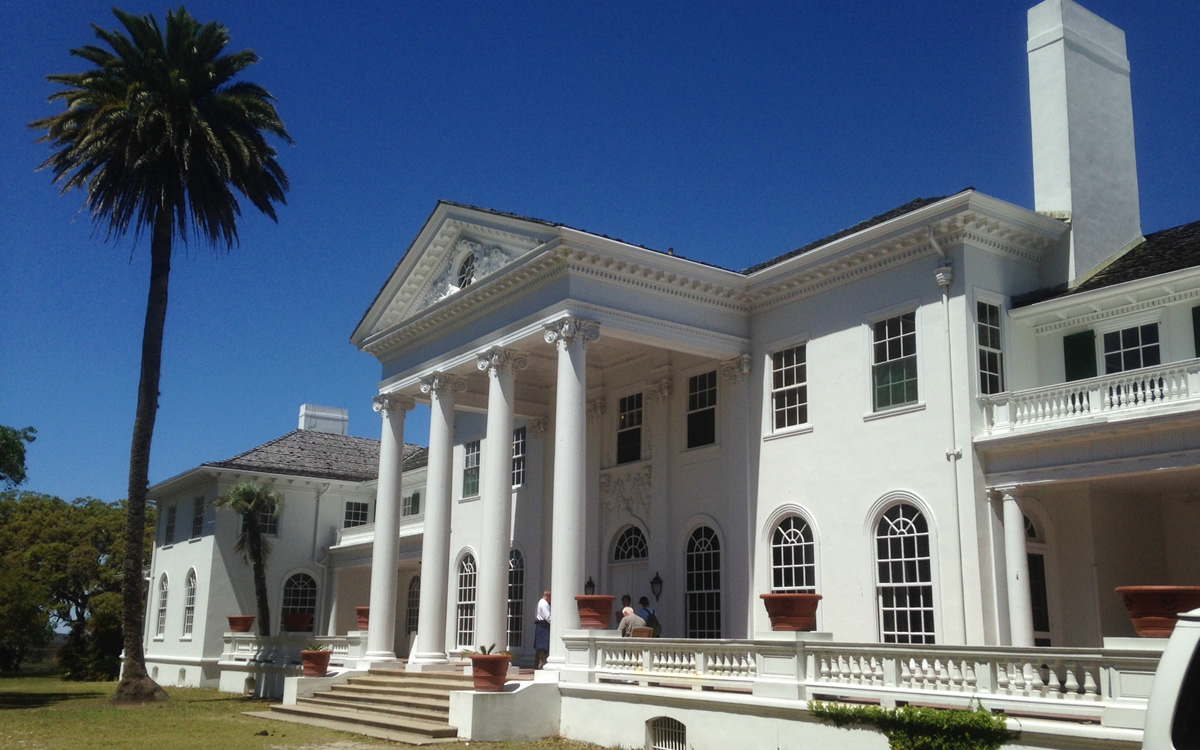
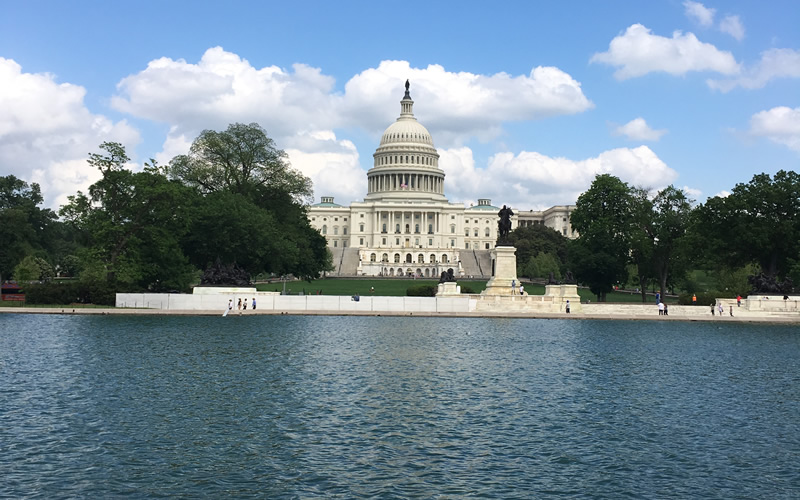

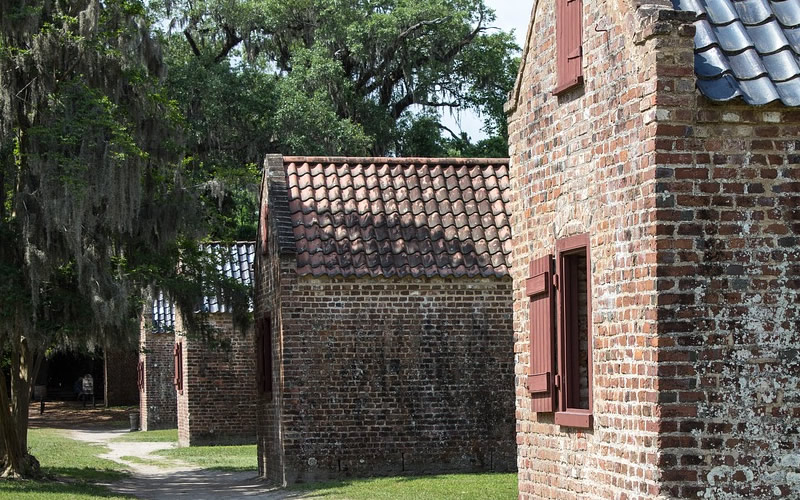
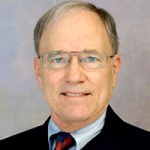

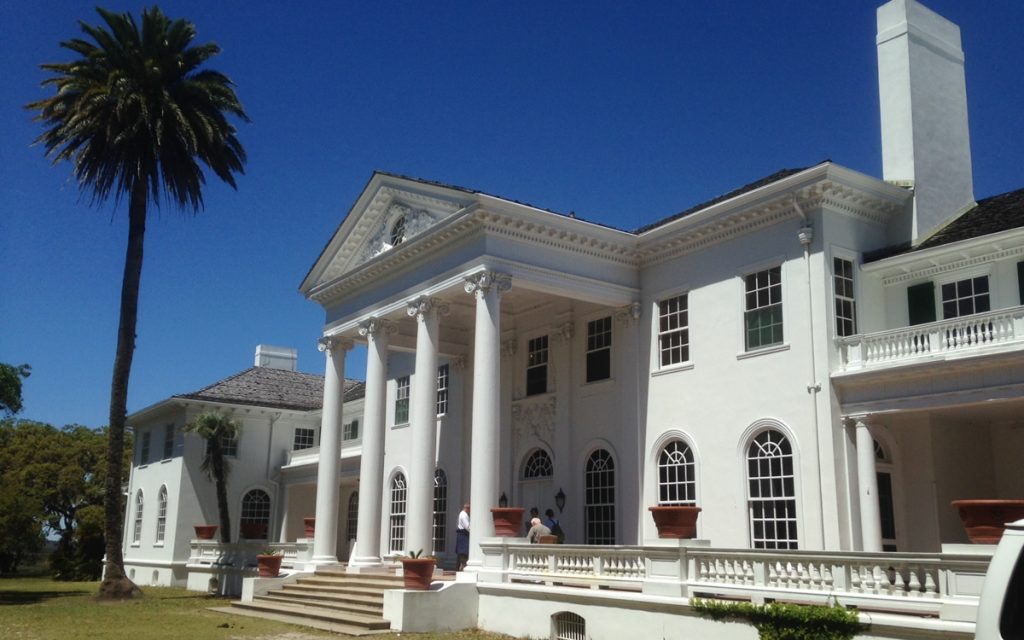
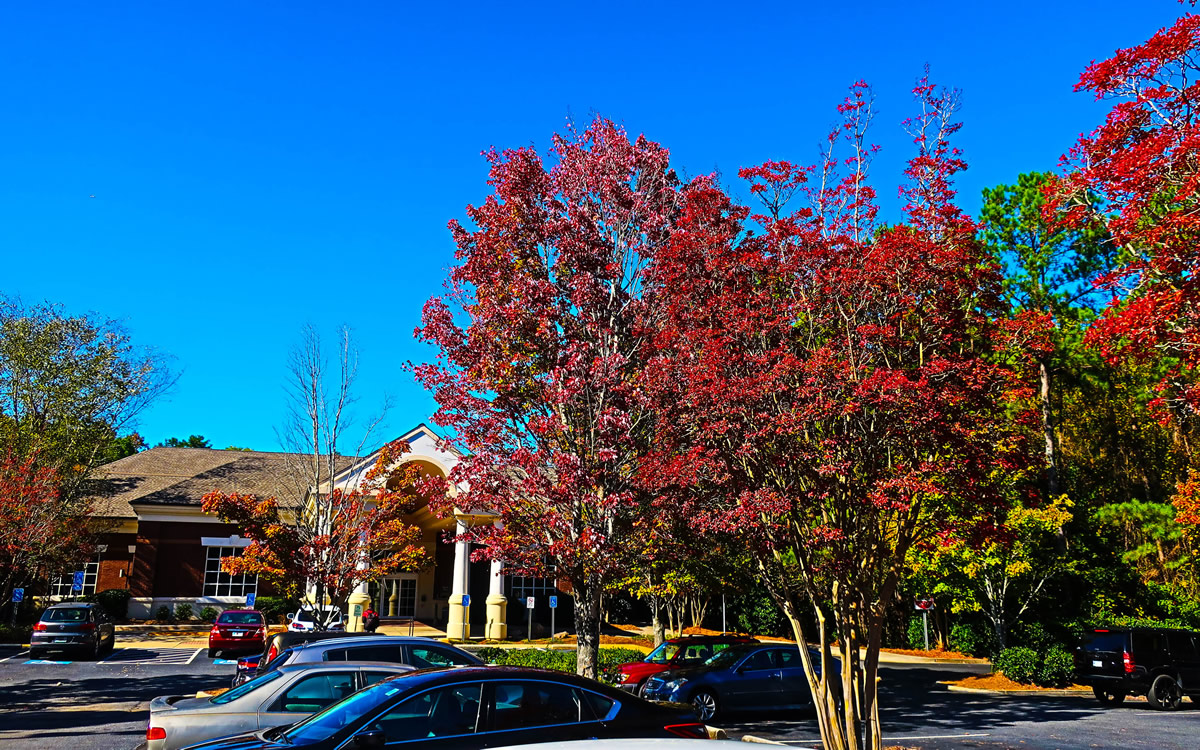








Follow Us